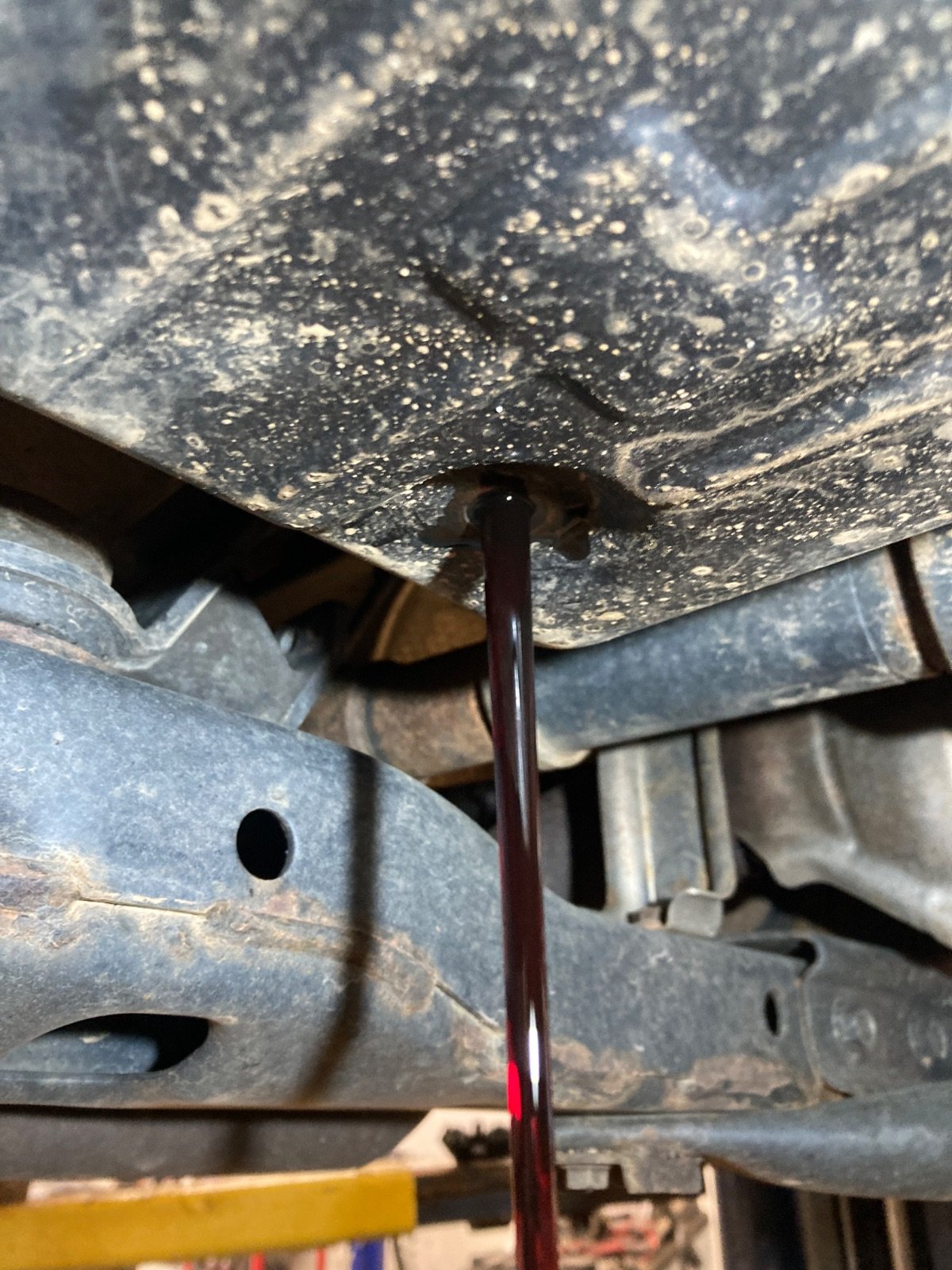Preventative Maintenance
-

Engine Oil
Everyone knows the importance of consistent engine oil changes. Some of you with newer Toyota and Lexus vehicles may have been made aware that the oil change interval on your vehicle is now 10,000 miles. At Toyo Workshop we advise 5,000 mile oil change intervals regardless of the vehicle. During my time with Toyota I observed a number of vehicles which call for 10,000 mile oil changes to have low oil, extremely dirty oil, and premature engine failure. Changing your oil is the most basic and cost effective maintenance you can do. Stick to 5,000 mile oil change intervals, you will not regret it.
-

Four Wheel Drive / All Wheel Drive Oil
4x4 and all-wheel drive (AWD) gear oil is a specialized lubricant used in the differentials, transfer case, and other drivetrain components of vehicles with four-wheel or all-wheel drive systems. This oil reduces friction, prevents wear, and helps dissipate heat generated by the moving gears. Over time, gear oil can break down due to heat, pressure, and contamination from metal particles or water, especially in off-road or demanding driving conditions. When the oil degrades, it loses its ability to properly protect these critical components, potentially leading to increased wear, overheating, or even mechanical failure. Periodically replacing 4x4 or AWD gear oil ensures the drivetrain continues to operate smoothly and reliably, extending the lifespan of the vehicle’s components and preventing costly repairs. We recommend the replacement of 4×4 and AWD gear oils every 30,000 miles.
-

Automatic Transmission Fluid
Automatic transmission fluid (ATF) should be periodically replaced even if Toyota claims it is "lifetime" fluid because, in reality, the fluid degrades over time due to heat, friction, and contamination. As the transmission operates, the fluid is subjected to high temperatures and mechanical stress, which can cause it to break down and lose its lubricating and cooling properties. Additionally, metal particles and debris from normal wear can accumulate in the fluid, potentially damaging internal components. Regularly replacing ATF helps maintain smooth shifting, prevents premature wear, and extends the life of the transmission, ultimately saving money on costly repairs or replacements. At Toyo Workshop, we recommend automatic transmission fluid replacement every 60,000 miles on your Toyota or Lexus.
-

Spark Plugs
Replacing the spark plugs on a Toyota or Lexus vehicle is important for maintaining optimal engine performance, fuel efficiency, and reliability. Spark plugs are responsible for igniting the air-fuel mixture inside the engine’s cylinders, and over time they can wear out, become fouled, or lose their ability to produce a strong spark. This can lead to poor acceleration, rough idling, reduced fuel economy, and even difficulty starting the vehicle. Toyota and Lexus vehicles, especially those with advanced ignition systems and high-efficiency engines, are designed to perform best with properly functioning spark plugs. Regular replacement, as recommended in the owner’s manual (either every 30,000, 60,000 or 120,000 miles depending on the engine and plug type), ensures the engine runs smoothly and prevents long-term damage that could result from misfires or inefficient combustion. It should also be noted that in many Toyota owner’s manuals it is stated that failure to replace the spark plugs at the suggested intervals will void the vehicle’s emissions warranty!
-

Engine Coolant
Periodic engine coolant replacement is essential for maintaining the performance and longevity of a Toyota or Lexus engine. Coolant, also known as antifreeze, regulates engine temperature by absorbing heat and preventing overheating, while also protecting internal components from corrosion and freezing. Over time, coolant breaks down and loses its effectiveness, and its protective additives deplete, allowing rust, scale, and deposits to form within the cooling system. This can lead to clogged passages, reduced cooling efficiency, and potential damage to critical components like the radiator, water pump, and head gasket. Even though Toyota and Lexus use long-life or super long-life coolant, it still requires replacement at the intervals specified in the owner’s manual—typically every 100,000 miles initially, and then every 50,000 miles thereafter. Regular coolant replacement helps ensure proper engine temperature control, prevents costly repairs, and keeps the vehicle running smoothly.
-

Hybrid Transaxle / Differential Fluid
Replacing the hybrid transaxle and hybrid rear differential fluid on Toyota and Lexus hybrid vehicles is crucial for maintaining the efficiency, performance, and longevity of the hybrid drivetrain. These specialized systems rely on high-quality lubricants to reduce friction, manage heat, and protect internal components such as gears, bearings, and electric motor parts. Over time, the fluid can degrade and become contaminated with metal particles and debris from normal wear, reducing its ability to provide proper lubrication and cooling. Although these fluids are often labeled as "lifetime" by manufacturers, real-world driving conditions—such as frequent stop-and-go traffic, long commutes, or hilly terrain—can accelerate fluid breakdown. Periodic replacement, typically every 60,000 miles, helps ensure smooth operation, maximizes energy efficiency, and prevents premature wear or damage to the hybrid system, ultimately preserving the performance and reliability that Toyota and Lexus hybrids are known for.
